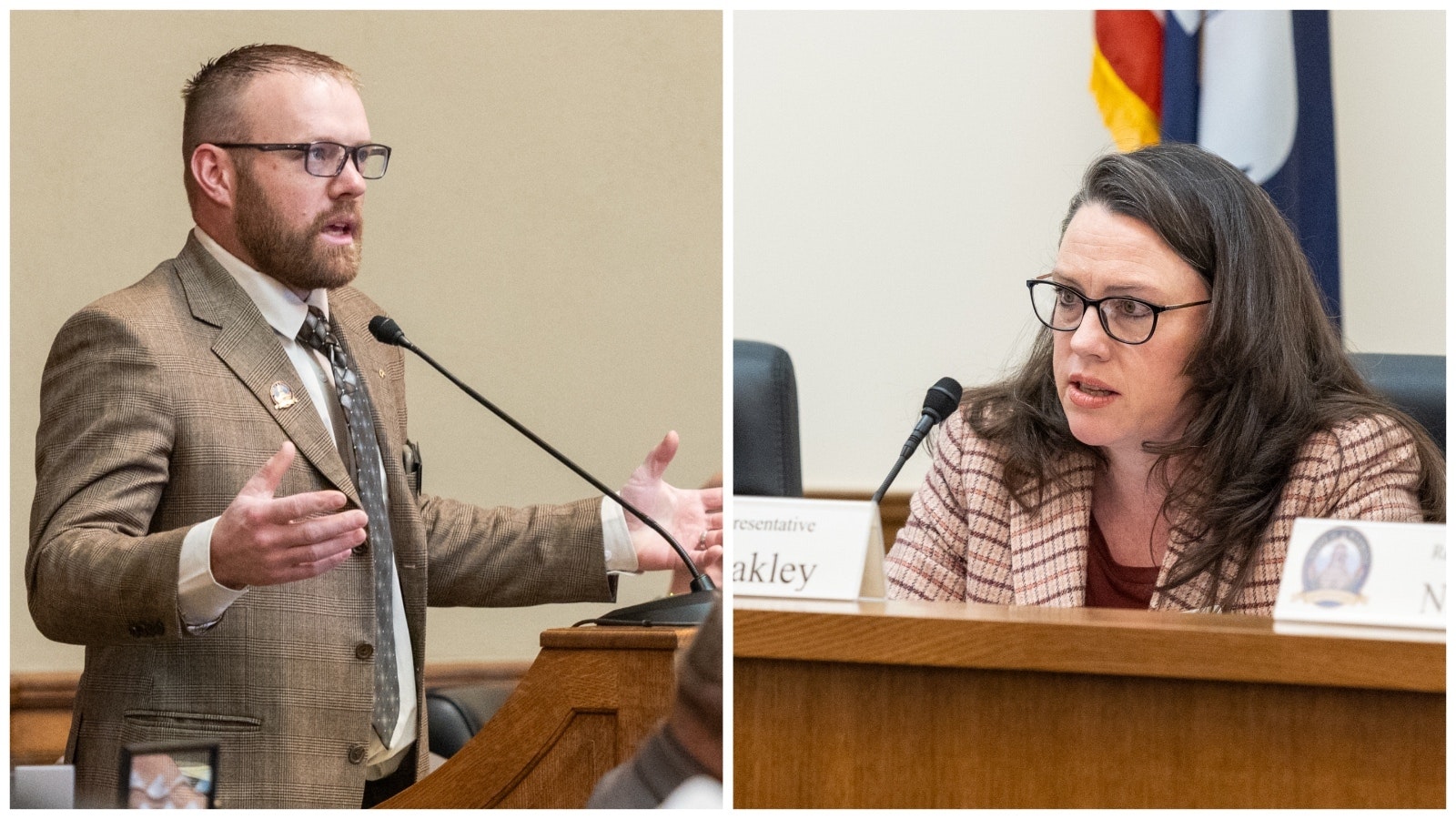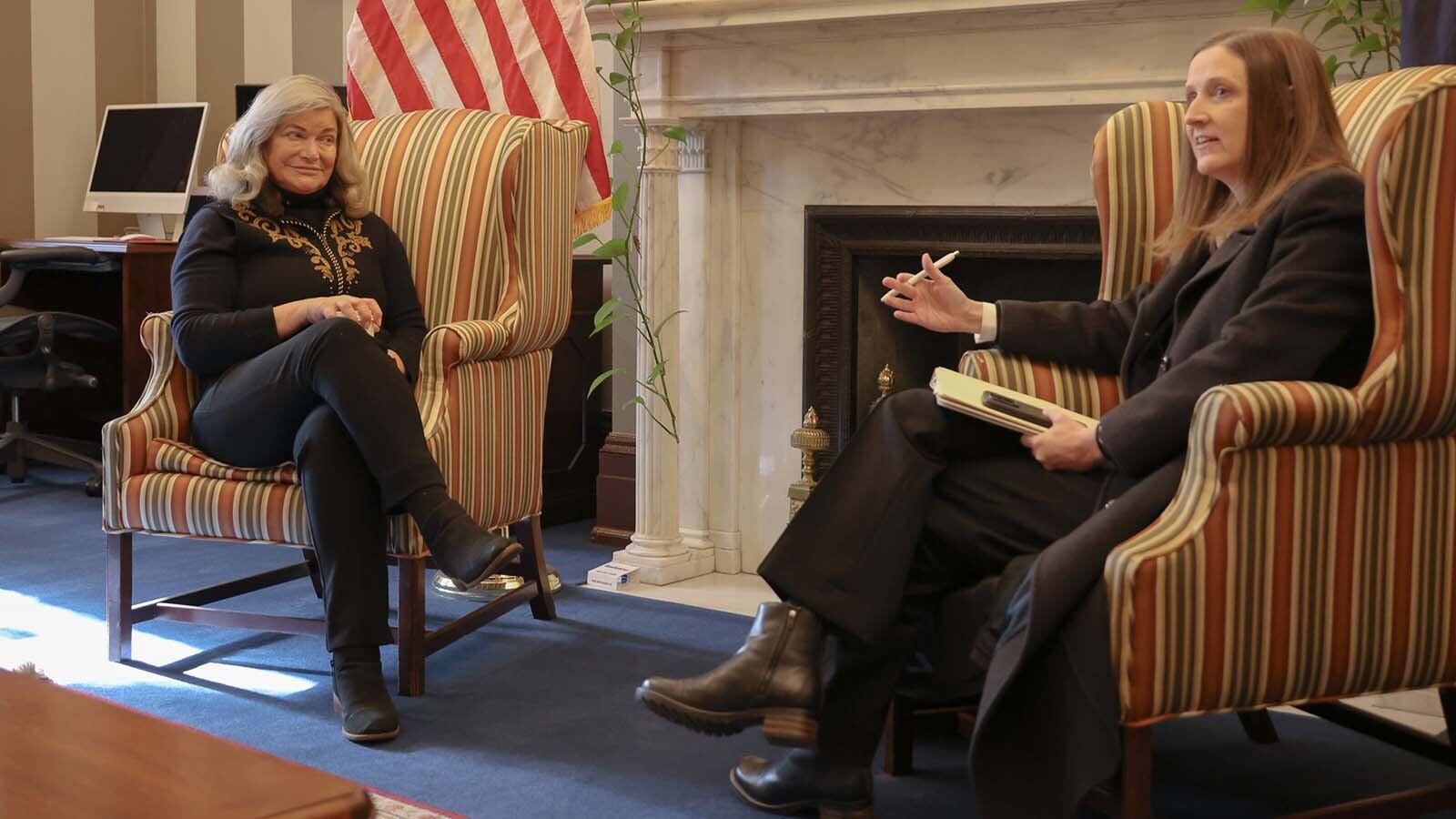A bill that would let judges freeze passports, change custody orders or block other actions if they fear someone is about to abduct a child is sailing through the Wyoming Legislature with almost no resistance.
Senate File 36, the Uniform Child Abduction Prevention Act, would give Wyoming judges an avenue to consider whether there’s a credible risk that someone — like a parent without primary custody — is about to abduct a child.
SF 36 passed Wyoming’s House Judiciary Committee on Friday and now advances to the House floor, where it must survive three readings before heading to Gov. Mark Gordon’s desk.
The state Senate passed it last week with 30 delegates in favor and only one, Sen. Bob Ide, R-Casper, opposed.
What It Does
If a judge finds a credible risk that someone will abduct a child, the judge can put holds on passports, change custody orders, restrict visitation, file restraining orders, make the suspect post a bond or grant any other relief allowed by state law.
If the risk of abduction is imminent, the court can order the child taken into state custody.
Under the bill’s language, judges would review past and ongoing developments in the life of the person posing an alleged threat of abduction — like whether the person has sold his home, abandoned his job, closed out his bank accounts or has ties to a country that doesn’t work with the United States in returning abducted children. The person’s immigration status in the U.S. is another factor, the bill says.
Once filed, an abduction prevention order could last until a child is 18, unless the child is emancipated, the order itself has a built-in expiration date or it’s modified by a subsequent court order.
Family Lawyers
Beth Lance, of the Wyoming Trial Lawyers Association, touted the bill as streamlining the family law practice. Both her organization and the American Bar Association support it, Lance told the committee on Friday.
It’s meant to curb parents who don’t have full custody from running off with their children, Lance said.
“We as family attorneys all can cite to examples where we’ve had this happen in our cases. It’s obviously quite distressing,” said Lance. “It’s traumatic for the children. It’s traumatic for the other parent.”
She had a case in Wyoming in which one parent had ties to a middle eastern country, from which no one would have been able to retrieve the child.
“Sometimes (they have) ties to that level, where the parent may actually feel they will never see their child again,” she said.
In another example, less than two weeks ago, a Riverton dad reunited with his two young daughters, and his ex-wife was arrested in Florida after absconding with the girls in January.
Lindsay Orchard, 33, was arrested on a warrant from Wyoming for interference with child custody. She was arrested by the Pinellas County Sheriff’s Office in St. Petersburg for leaving the state with her two children Jan. 31 without permission of the custodial parent and father, Brian Cowart.
Mobilizing Cops
The bill allows judges to mobilize law enforcement officers to find a child, return a child or enforce a custody determination.
Rep. Ember Oakley, R-Riverton, said she liked that aspect because an abduction order could give officers specific direction from a judge so officers won’t have to comb through evolving custody agreements themselves to determine if someone can be arrested for violating a custody order.
“I appreciate the direction of this,” said Oakley, who voted in favor of the bill.
‘Uniform’
Rep. Jeremy Haroldson, R-Wheatland, said he saw the benefits of the bill but dislikes “uniform” law adoptions because they feel like they’re trapping Wyoming in sweeping arrangements with other states.
“Any time you tie with other states, sometimes it can have unintended consequences,” said Haroldson.
Lance had said that the law is being adopted quickly by other states.
Rep. Ken Chestek, D-Laramie, said the law may be uniform, but it’s not a compact, so Wyoming can change it if it needs to.
“I’m very much in support of this bill,” added Chestek.
Roll Call
The committee advanced the bill with two votes against and six in favor.
Haroldson voted no along with Rep. Mark Jennings, R-Sheridan, who left an absentee no-vote.
Committee Chair Art Washut, R-Casper, said Jennings was not at the meeting because he went to the Friday funeral of Sheridan Police Sgt. Nevada Krinkee, who was shot to death in the line of duty Feb. 13.
Rep. Barry Crago, R-Buffalo, also was not at the meeting because he went to the funeral, Washut said. Crago did not leave an absentee vote.
The yes votes were Chestek, Oakley, Washut, and Reps. Tony Niemiec, R-Green River; Karlee Provenza, D-Laramie; and Rachel Rodriguez-Williams, R-Cody.
‘Thought Police’
When the committee first heard public pleas for the codification of this act in April 2023, Jennings said it verged on the realm of “thought police” — judges believing they can divine what people are about to do.
Requiring judges to hold evidentiary hearings before issuing abduction prevention orders could soothe Jennings’ worries of “thought police,” Oakley had said at the time.
The bill as worded now would require judges to hold evidentiary hearings before issuing the orders.
Another guardrail in the bill orders judges to consider whether the parent trying to abduct the child believed in good faith that he or she had to do so, to protect the child from imminent harm.
Clair McFarland can be reached at clair@cowboystatedaily.com.





